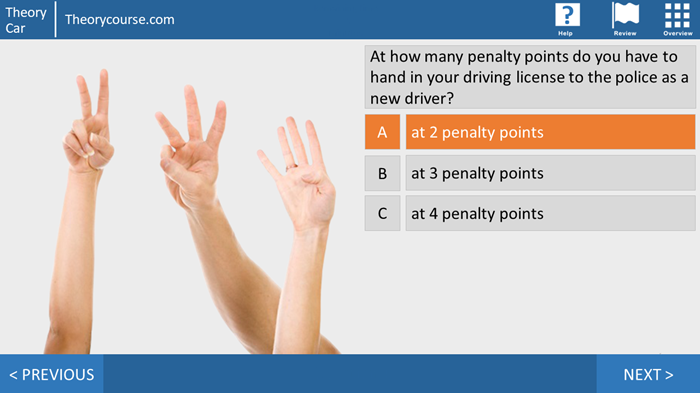Beginner driving license

Everyone who gets a driving license for the first time is a new driver. It doesn’t matter how old you are. Or what type of vehicle the license is for.
How long you keep the beginner driving license depends on your age and the type of license.
- Are you 16 when you get your license? Then you will be a new driver for 7 years.
- Are you 17 or older? Then you will be a new driver for 5 years.
- Do you first get your AM or T license at 16 or 17 years old? Then you are a new driver for 7 years. If you also get the B license at the age of 17, you will be a new driver for 5 years. This starts from the moment the B license is issued.
- Do you obtain a driving license AM or T before you turn 18? And do you get your B license after you turn 18? Then you remain a new driver for 7 years. This applies from the moment the driving license AM or T is issued.
Lower alcohol limits apply to new drivers than experienced drivers.
A new driver is not allowed to drive with more than 0.2 promille alcohol in the blood. For an experienced driver, the limit is 0.5 promille.
With a beginner driver’s license, you can get penalty points if the police stop you for a traffic violation. The officer who stops you must have personally established that you were driving the vehicle.
You can get penalty points if:
- you cause danger or nuisance in traffic.
- you have caused a traffic accident, killing another person, or causing grievous bodily harm.
- you tailgate at a speed of more than 80 kilometers per hour.
- you drive more than 40 kilometers per hour faster than permitted on motorways. Or on other roads, you drive more than 30 kilometers per hour faster than permitted.
- you fail to observe the traffic rules properly, resulting in a collision with physical injury or material damage.
